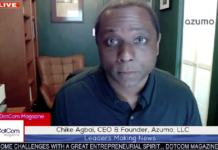Artificial Intelligence (AI) is rapidly transforming many aspects of the modern workforce, and one area where it is having a particularly profound impact is in job matching. AI in job matching is revolutionizing the way companies connect with top talent, streamlining the recruitment process and ensuring that the right candidates are paired with the right roles. By leveraging advanced algorithms and machine learning techniques, AI systems can now analyze large datasets to identify the most suitable candidates for job positions based on skills, experience, and other factors. In this article, we will explore the top ten takeaways you should know about AI in job matching, highlighting its benefits, challenges, and future potential. Whether you are an HR professional, a job seeker, or simply interested in the evolving landscape of recruitment, these insights will help you understand the growing role of AI in job matching.
1. AI Enhances the Efficiency of the Recruitment Process
One of the most significant advantages of AI in job matching is its ability to dramatically improve the efficiency of the recruitment process. Traditionally, HR departments had to sift through hundreds or even thousands of resumes to identify the most qualified candidates. This process was not only time-consuming but also prone to human error and biases. AI helps to eliminate these issues by automating much of the candidate screening process.
AI algorithms can quickly scan resumes and match candidates’ qualifications, experience, and skills with the job requirements, reducing the time spent on manual searches. Additionally, AI can analyze a broader range of data sources, including social media profiles and online portfolios, to get a more complete picture of each candidate. By automating this process, AI frees up HR professionals to focus on higher-value tasks, such as engaging with candidates and making final decisions.
2. AI Reduces Bias and Promotes Diversity
Human biases can often influence hiring decisions, whether consciously or unconsciously. Factors such as gender, ethnicity, or even personality traits can affect how a candidate is perceived, leading to biased hiring outcomes. This is where AI can play a pivotal role in job matching, as it can help remove such biases from the recruitment process.
AI-powered job matching tools can be programmed to focus solely on objective criteria such as skills, experience, and qualifications, rather than subjective traits. This ensures that all candidates are evaluated on an equal footing, leading to more diverse and inclusive hiring practices. For instance, AI systems can be designed to anonymize resumes, removing names, photos, and other identifying information that could introduce bias. This allows for a more equitable hiring process and helps organizations build diverse teams that better reflect the world around them.
3. AI Offers Predictive Insights into Candidate Success
AI is not just about matching candidates with job descriptions—it can also predict how successful a candidate is likely to be in a specific role. By analyzing historical data from past hires, AI can identify patterns that indicate which traits and skills are correlated with success in a particular job. This predictive capability allows AI systems to recommend candidates who are not only qualified but also likely to perform well in the long term.
For example, AI can analyze previous job performance metrics, such as productivity or tenure, and use that information to assess whether a candidate is a good fit for a particular role. These predictive insights can also be used to suggest training or development opportunities for new hires, ensuring they have the tools they need to succeed. By using AI to forecast candidate success, organizations can make smarter hiring decisions that benefit both the company and the candidate.
4. AI Improves Candidate Matching Beyond Resumes
Traditional job matching processes often relied heavily on resumes as the primary source of information. However, resumes can sometimes be limited in their ability to fully capture a candidate’s potential. AI enhances job matching by analyzing a wider range of data sources, including cover letters, social media profiles, and other publicly available content. This provides a more holistic view of a candidate’s qualifications and interests.
For instance, AI systems can assess a candidate’s activity on professional networking sites like LinkedIn, their blog posts, or their contributions to online forums to gain insights into their expertise and passion for their field. By considering these additional data points, AI can match candidates with roles that better align with their skills, values, and career aspirations, leading to more successful and fulfilling job placements.
5. AI Can Personalize the Job Search Experience
Job seekers often find the recruitment process to be overwhelming and impersonal, with many applications being sent to employers with little chance of a response. AI is changing this by personalizing the job search experience for candidates. With AI-powered tools, candidates can receive tailored job recommendations based on their skills, experience, preferences, and even career goals.
For example, AI job matching platforms can track the jobs that a candidate views or applies for, learning from this behavior to suggest similar roles that may be a better fit. Additionally, AI systems can analyze a candidate’s interaction with various job listings to refine the recommendations they receive over time. This personalization not only helps candidates find better opportunities but also increases their chances of landing a job that suits their unique abilities and aspirations.
6. AI Increases the Speed of Hiring
In today’s fast-paced job market, speed is of the essence. Companies need to fill positions quickly to avoid losing out on top talent, while candidates want to know as soon as possible whether they have been selected for a role. AI helps speed up the hiring process by automating key steps and streamlining workflows.
For example, AI-powered chatbots can engage with candidates immediately after they apply, providing instant feedback or scheduling interviews. AI systems can also analyze applications and assess qualifications in a matter of seconds, which would take humans significantly longer. This faster pace reduces the time-to-hire, improving the candidate experience and enabling companies to secure top talent before their competitors.
7. AI Facilitates Continuous Learning and Development
AI can also play a role in continuous learning and development, ensuring that employees are not only well-matched to their jobs but also have the skills they need to grow within their roles. By analyzing job performance and identifying skill gaps, AI systems can recommend personalized learning and development programs that help employees enhance their abilities.
For example, if AI identifies that a candidate’s technical skills are a good match for a role but their communication abilities could be improved, it might suggest training in public speaking or team collaboration. AI can help employees stay ahead of the curve by providing the tools they need to keep up with industry trends and develop the skills necessary for career advancement.
8. AI Optimizes Workforce Planning
AI-driven job matching is not just beneficial for recruitment—it can also assist with workforce planning. By analyzing data from both existing employees and candidates, AI can help HR teams identify potential skill gaps, predict future hiring needs, and make data-driven decisions about where to allocate resources.
For example, if AI identifies that a particular department is experiencing high turnover or lacks a certain skill set, HR teams can use this information to proactively address the issue by hiring the right candidates or providing existing employees with the necessary training. By using AI for workforce planning, organizations can ensure they are always prepared for the future and have the right people in the right roles at the right time.
9. AI Enables Global Job Matching
As companies expand into new markets and recruit talent from around the world, the need for global job matching has never been more important. AI makes this process easier by helping organizations match candidates from different geographic locations, backgrounds, and cultural contexts to the right jobs.
AI can evaluate candidates based on their qualifications, experience, and skills, regardless of their location, and identify the best-fit candidates for remote or international roles. This opens up new opportunities for both employers and job seekers, as AI removes geographic and logistical barriers that may have previously limited job matching efforts. Additionally, AI can help organizations assess cultural fit by analyzing a candidate’s communication style, values, and preferences, ensuring they align with the company’s global culture.
10. The Future of AI in Job Matching is Full of Possibilities
AI in job matching is still in its early stages, but its potential is vast. As AI technology continues to evolve, we can expect even more sophisticated algorithms and systems that can match candidates with jobs in increasingly precise ways. In the future, AI may be able to predict career trajectories, offer real-time job suggestions based on market trends, and even match candidates with companies based on shared values and goals.
The integration of AI with other technologies, such as virtual reality and augmented reality, may further enhance the job matching process by allowing candidates to experience a role or workplace environment before committing. With advancements in natural language processing and sentiment analysis, AI may also be able to better understand candidates’ emotions and motivations, improving the overall job matching experience.
Conclusion
AI is fundamentally changing the way job matching is done, offering significant benefits for both employers and job seekers. By improving efficiency, reducing bias, offering predictive insights, and personalizing the job search experience, AI is reshaping recruitment practices and making it easier for companies to find the right talent. The growing capabilities of AI in job matching also present new opportunities for workforce planning, continuous development, and global recruitment. As AI continues to evolve, its role in job matching will only expand, providing even more possibilities for optimizing the hiring process. Understanding the top ten takeaways about AI in job matching can help both companies and job seekers harness the full potential of this transformative technology.

















